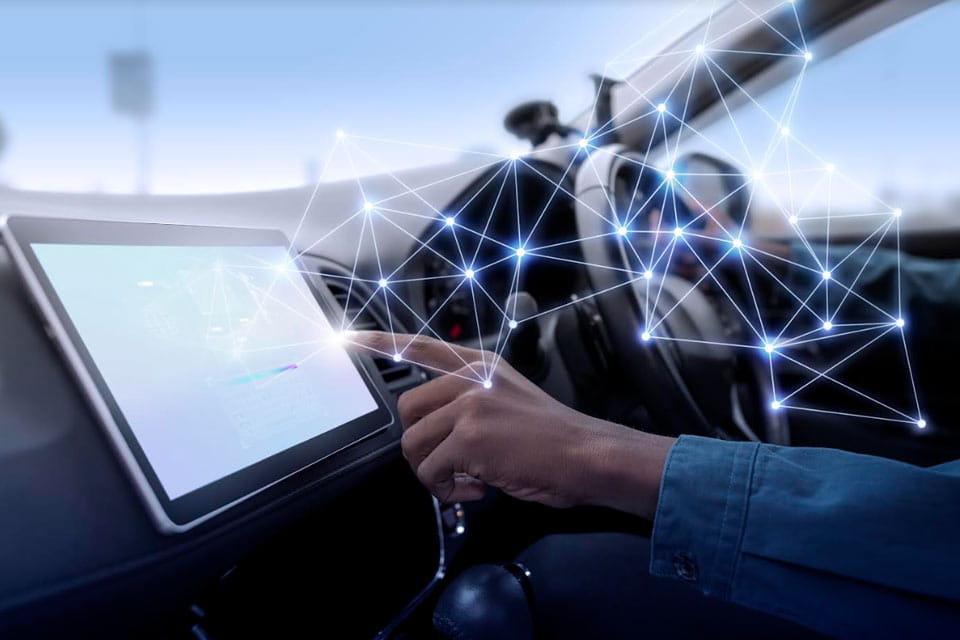
Car tech that's here for good
The automotive industry has come a long way since its inception and car manufacturers are pushing to implement the latest innovations. Consumers want hyper-personalisation and self-driving cars that minimising the high involvement of human drivers.
Tesla became the first automaker to sell 2 million EVs in 2020 and it's no surprise other players are giving the brand tough competition. Car makers are working on not just making EVs but manufacturing the best EVs in the industry. In terms of price, performance, and mile range per charge, understanding where car technology is headed can make a huge difference when it comes to moving faster and optimizing user experience. While most vehicle manufacturing companies are still tweaking the latest features, some have already started working on future projects. Here are the more noticeable car tech innovations that are going mainstream and may be expected in vehicles this decade.
Automatic Liftgates Isn’t it inconvenient when you have your hands full of groceries and don’t have space to unpack and load items? Car manufacturers are aware of how frustrating this is which is why many have introduced automatic liftgates. These detect foot motions via sensors placed under the rear bumper, and just waving a foot underneath is enough to get the rear door automatically open. Some models feature an electric key fob which detects proximity to vehicles and when the vehicle user gets close enough, the doors open up. It's one of the more convenient innovations being incorporated into cars today.
360 Degree Cameras A 360-degree camera lets you view your car from all angles and provides virtual top-down views of the driving environment. It helps with cross-traffic alerts, reverse brake assist, and prevents unwanted collisions. It's a good way to reduce insurance claims and keeps cars dent and scratch-free.
Lane Keep Assist Lane Keep Assist gently steers the vehicle back into the lane when it starts to drift. Drivers receive an alert or vibration, and it helps drivers stay engaged. Lane Keep Assist technology helps with safe driving and prevents the vehicle from over-steering and skidding.
Fast Charging Most electric vehicles sport a regular AC charger which can charge the battery in 4 hours from 0 to 100% capacity, while some chargers take up to 8 hours. But fast charging changes things completely and makes powering back up very fast. With fast charging technology, it takes as less as 35 minutes to get up to an 80% charge. EV manufacturers are investing a lot of money into this technology as it makes EV ownership much more viable when compared to internal combustion engine (ICE) cars. The second reason is that charging stations are still hard to come, so fast charging is becoming a key requirement for consumers.
Solid State Batteries Solid state batteries overcome the main challenges of using lead-acid batteries, such as corrosion and leakage. They have reduced charging times when compared to lithium-ion batteries and aren’t flammable like liquid batteries or gas. Indian automobile manufacturers are dialing down on their efforts to source locally mass produce solid-state batteries since the country is expected to require ~ 120GWh of lithium batteries by 2030.
Automated Parking Assist As most drivers might tell you, one of the toughest parts of driving, is parking. New drivers often get nervous, and even seasoned drivers can fumble in unfamiliar and tight spots. Car manufacturers across the globe have been perfecting parking assist features, and have begun incorporating them into the latest models, sending cars smoothly straight to designated parking spots. Automated parking assistance will allow you to leave your car and attend to your business while it parks away on its own, thus being efficient while also saving time.
In-Car Biometric Technology In-car biometrics such as facial recognition and fingerprint systems are becoming an integral part of our daily lives. It’s no surprise that automakers are planning to make upgrades to this technology to future-proof security. Car owners take data privacy seriously, which is why in-car biometrics will enhance identity verification and automatically customize interior settings according to autosaved driver preferences.
Interior Monitoring Technology Real-Time Emotion Adaptive Driving systems are paving the way to multimode recognition and scanning of the driver's body in real-time to assess their emotions. Reading body language, and detecting breathing patterns, heartbeats, and skin conduction through sensors and cameras installed in vehicle cabins will become the norm. Automated scanning of physical features will enable cars to detect if the driver is panicking, stable, or otherwise distracted. It will make suggestions to occupants on what routes to take based on data analytics and make the on-road experience much safer.
Vehicle Tracking Software An estimated one lakh cars are stolen in India each year, which is why car manufacturers are paying special attention to technology that can mitigate or even prevent against theft. Such technology makes it convenient for law enforcement authorities to track down a stolen vehicle and may even prevent cases of unauthorized vehicle lifting. For example, when an intruder is detected to be driving, the stolen vehicle can remotely slow down or prevent it from getting restarted after it's shut off.
The automobile industry is taking vast leaps towards implementing new technologies and is even exploring more highly advanced car-tech to enable vehicle owners. While it might be a while before very advanced technologies become commonplace (many of which are covered in a separate article), there's a lot to look forward to on the road to better driving experiences.
Most of the technologies feature in top end variants of cars and if you specifically want any of these in your cars, our expert team can recommend the best cars on lease you could opt for which feature those. Contact us today!
Note: All brands mentioned are Trademarks of their respective owners.



